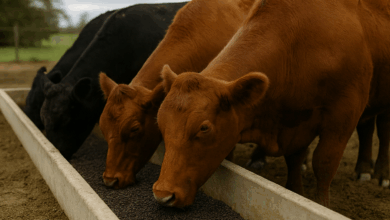
Biochar, a carbon-rich material produced through the pyrolysis of organic biomass, has garnered attention for its potential benefits in soil enhancement, carbon sequestration, and environmental sustainability. However, the successful implementation of biochar technologies significantly depends on public perception and community acceptance. Understanding these perspectives is crucial for policymakers, researchers, and industry stakeholders aiming to promote biochar applications effectively.
Current Public Awareness and Perception
Studies indicate that public awareness of biochar remains relatively low. For instance, research analyzing 12 years of Twitter data revealed that biochar received moderate attention compared to other carbon dioxide removal (CDR) methods, with a generally positive sentiment due to its perceived natural approach and agricultural benefits. Similarly, a study in Switzerland found that among various negative emission technologies (NETs), biochar was perceived positively, though public familiarity with the term was limited.
Factors Influencing Public Acceptance
Several factors influence how communities perceive and accept biochar technologies:
- Perceived Benefits: The recognition of biochar’s role in improving soil health, enhancing crop yields, and contributing to carbon sequestration can positively influence acceptance.
- Environmental Concerns: Communities are more likely to support biochar projects if they align with environmental sustainability goals, such as reducing greenhouse gas emissions and promoting renewable energy.
- Source Material: The type of biomass used to produce biochar can impact acceptance. For example, a study in Swansea, Wales, found that individuals were more comfortable with biochar derived from wood than from faecal sludge.
- Gender and Demographics: Demographic factors, including gender, can influence perceptions. The same study in Swansea noted that males were almost twice as likely as females to have a positive perception of biosolids and faecal sludge biochar.
Challenges to Adoption
Despite its potential, several challenges hinder the widespread adoption of biochar:
- Knowledge Gaps: Limited public knowledge about biochar’s benefits and applications can lead to skepticism or indifference.
- Economic Barriers: The perception of biochar as an “exotic product” and the dominance of enthusiasts with limited local impact can impede broader acceptance.
- Policy and Regulatory Hurdles: Complex permitting processes and lack of standardized regulations can deter potential adopters.
Strategies to Enhance Community Acceptance
To improve public perception and acceptance of biochar technologies, the following strategies can be employed:
- Educational Initiatives: Implementing educational programs to inform communities about biochar’s environmental and agricultural benefits can bridge knowledge gaps.
- Community Engagement: Involving local communities in biochar projects fosters a sense of ownership and trust, leading to higher acceptance rates.
- Transparent Communication: Openly addressing concerns and providing clear information about biochar production processes and safety can alleviate public apprehensions.
- Policy Support: Developing supportive policies and streamlined permitting processes can facilitate the adoption of biochar technologies.
Conclusion
Understanding and addressing public perception is vital for the successful integration of biochar technologies into environmental and agricultural practices. By recognizing the factors that influence community acceptance and implementing targeted strategies to enhance awareness and trust, stakeholders can promote the adoption of biochar, contributing to sustainable development and climate change mitigation.
Sources:
- Public Perceptions of Faecal Sludge Biochar and Biosolids Use in Agriculture
- Public Perception and Acceptance of Negative Emission Technologies
- Environmental and Economic Advantages of Production and Application of Biochar
- A Perspective on Barriers and Opportunities for Scaling Up Biochar
- Biochar Technology and Its Varied Applications
- Biochar – American Farmland Trust
- Digging into Biochar – USDA Climate Hubs
- Public Perceptions and Support of Climate Intervention Technologies
- Biochar



